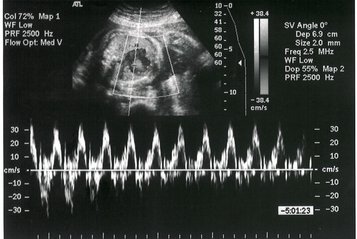Pregnancy is a very special occasion in a woman’s life. Creating and bringing a new life into this world is very special and also involves a huge responsibility as every parent wants the best health for their child. Giving a child the best start in life, begins early, long before conception.
Human biology is amazingly wise. The body receives signals from the environment and ‘informs’ it that the environment is abundant and allows for the growth and nutrition of the coming baby. So if the to-be mother is nutritionally depleted, the message to the body is that conditions are unfavorable for new life, and the body may decide that this is not the appropriate time for pregnancy. And conversely, being nutritionally replete could be all that is required to conceive, in a case of a couple with no other identifiable complication.
It is evident that for such signals to reach the cells and to be incorporated into the DNA, they have to come from natural, plant sources and sometimes animal sources such as omega 3.The cells in plants and animals carry information which can be read by the human cells. Pharmaceutical, chemical products cannot carry this information and can actually be detrimental. Cell membranes carry receptors which act like doorways or every single nutrient which enters the cell. Fake, chemical supplements are sufficiently alike the natural molecules to be accepted by the receptors but also sufficiently unlike that they can gum up the works, damaging the cell membrane, the cell, the tissue, the organ and ultimately the body.
The mother-to-be needs to be replete with nutrients to ensure the optimal well-being of the baby. These need to be started early enough, at least three months before conception.
The very early embryo, even before implantation, can sense and react to the environment in which it develops.
Prepregnancy nutrition requirements

Folic acid
This one is well known. Folic acid supplementation is important and its role in preventing neural tube defects such as spina bifida in the newborn is well documented.
Omega 3 Fatty Acids
Starting Omega 3 six months before you conceive, allows the body to build up its stores of essential fatty acids. This can improve fertility by reducing fertility issues related to chronic inflammation-. Omega 3 is important in the development of the baby’s brain – intelligence, visual acuity, memory.

A Multivitamin multimineral tablet contains (hopefully!) all the vitamins, all the minerals one needs so that the mother’s nutritional status is optimal.
Once again I would reiterate that it is crucial that your multivitamin come from a natural, organic source. I would go so far as to say that it is better to not take anything than to permit a chemical to enter your body. At least you are not wilfully doing harm.
During Pregnancy
Omega 3 fatty acids are a major constituent of the fats in the brain and involved in the development of the eyes. Thus supplementation with omega 3 improves visual acuity, attention span, learning and cognitive ability of the baby. They help prevent preterm birth and low birth weight babies.
How much and what source? Vegetarian sources such as walnuts and flaxseed contain the compound ALA which needs to be converted into DHA, the compound in the brain. This conversion in the body is inefficient, about 1-10% of ingested ALA gets converted to DHA. Fish sources are likely contaminated with mercury, therefore choose fish oil from salmon fished in cold, deep waters.Ideally take a minimum of 300mg DHA daily.

Iron – The pregnant woman needs daily oral iron supplementation, with 30 mg to 60 mg of elemental iron to prevent anaemia, low birth weight, and preterm birth.
Calcium – 1200mg a day. Make sure the calcium you choose is balanced with magnesium, Vit D and Vit K.
Probiotics – help prevent allergies in the baby.
Protein – is essential for growth of the baby and the mother needs about 1.2 gm/kg body weight per day. This amount is usually difficult to obtain from the diet and certainly a vegetarian diet is inadequate. Choose a source which provides all essential amino acids and is concentrated enough to help achieve the required levels.
Vit D helps prevent respiratory infections in the baby and prevent gestational diabetes in the mother.
Continue with the multivitamin and Folic Acid.
After pregnancy, during lactation

All conditions remain the same as the growing baby’s needs continue and indeed, increase. And so all the supplements used in pregnancy must continue.

Wish you a healthy pregnancy and a healthy baby!
